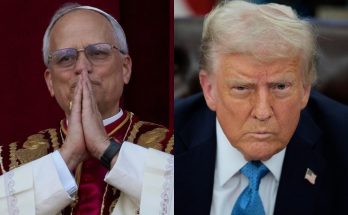White House Press Secretary Karoline Leavitt has once again voiced strong support for the administration’s proposal to reduce federal spending, emphasizing the plan as a responsible and historically grounded step toward long-term fiscal health. Speaking during a recent press briefing, Leavitt explained that the initiative is based on detailed recommendations from the Department of Government Efficiency and is aimed at making government operations more streamlined and cost-effective.
According to Leavitt, this is not about cutting essential services or reducing access to important public programs. Instead, the focus is on eliminating redundancies, improving agency performance, and ensuring that taxpayer dollars are being put to their best use. “This is about making government work better, not smaller,” she said. “It’s about accountability and sustainability—not austerity.”
Leavitt drew attention to past examples where both Democratic and Republican administrations implemented similar measures to rein in spending during periods of economic pressure or heightened concern over the national debt. From bipartisan commissions to presidential mandates, these efforts have often focused on reducing inefficiencies in order to safeguard the country’s long-term financial position.
“This administration is taking a responsible and measured approach,” Leavitt added. “We are learning from history and applying those lessons to the current moment. We believe that streamlining operations will not only strengthen the economy but also restore public trust in how government functions.”
Her remarks quickly gained traction on social media, where users shared historical clips and quotes from presidents and lawmakers across party lines who once advocated for similar reforms. Supporters praised the administration’s effort as a return to fiscal discipline, calling it a necessary correction in an era of rising debt and growing public concern over federal spending. Some even pointed to the potential for long-term savings and improved service delivery if executed effectively.
However, the initiative has also drawn caution from other corners of the public and policy sphere. Critics argue that spending cuts, if not carefully managed, could affect the quality or accessibility of public services. They are urging the administration to maintain transparency throughout the process and to prioritize investments in critical areas such as education, healthcare, and infrastructure.
As budget negotiations continue on Capitol Hill, Leavitt’s comments are expected to play a key role in framing the administration’s messaging in the weeks ahead. Lawmakers from both parties are now weighing the proposals with an eye toward balancing efficiency with equity and effectiveness.
The debate over federal spending is far from new, but in today’s climate of economic uncertainty, it has taken on renewed urgency. With both supporters and critics engaged in the conversation, the outcome will likely shape the direction of fiscal policy for years to come.
For now, the administration maintains that this is not simply about trimming budgets—it’s about building a stronger, more efficient government that works better for the American people.



